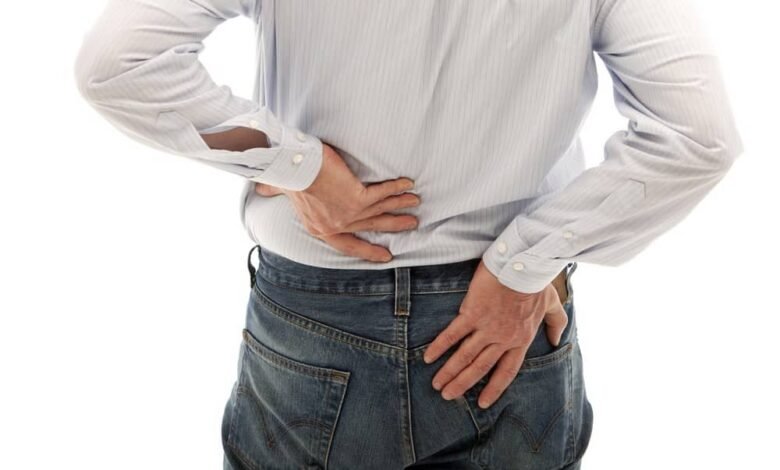Prostatitis

Prostatitis – what is it
Prostatitis is swelling or inflammation of the prostate gland. It is often painful. The prostate gland is located just below a man’s bladder.
In young men, the prostate is the size of a walnut. Normally, the gland grows with age.
There are several types of prostatitis. They vary depending on when the first symptoms appeared and what they are.
What are the causes
Prostatitis is a common disease among men that affects the prostate gland and can cause various unpleasant symptoms.
Although the exact reason for the development of prostatitis is not completely clear, there are several factors and conditions that can play a role in the development of this problem.
- Bacterial infections: Approximately 10% of prostatitis cases are due to bacterial infections. Bacteria can reach the prostate in several ways, including through the urethra, as a result of a bladder infection, or through the use of a urinary catheter. This type of prostatitis is commonly called bacterial prostatitis and may be associated with specific types of bacteria such as E. coli or Klebsiella.
- Chronic non-bacterial prostatitis: Most cases of prostatitis are chronic non-bacterial prostatitis. , which are not caused by an overt bacterial infection. In this case, the causes of inflammation of the prostate gland can be numerous and complex. Some of the suspected factors include immune system disorders, autoimmune reactions, hormonal imbalances and even damage to the tissues around the prostate.
- Genetic factors: Some research suggests that genetic predisposition may play a role role in the development of prostatitis. If you have a family history of prostatitis, you may be more prone to developing this problem.
- Lifestyles and nutrition: Poor eating habits, insufficient physical activity and long-term stress may increase the risk of prostatitis. A diet high in saturated fat and poor nutritional practices can affect prostate health.
- Other Factors: Other possible factors that can contribute to prostatitis include sexual trauma or trauma. during sports that affect the prostate area.
It is important to note that the causes of prostatitis are numerous and often interact to cause symptoms and dysfunctions in the prostate area.< /p>
For the diagnosis and treatment of prostatitis, it is important to consult a doctor or urologist who can make a detailed assessment of your condition and prescribe the appropriate treatment to adapt to your case.
Regular checkups and a healthy lifestyle can also help prevent prostatitis and improve the overall health of the prostate gland.
What are the symptoms
Symptoms are almost identical in most forms of inflammation or swelling of the prostate gland except for the acute form of the disease and can be expressed in:
- Frequent urge to urinate, passing small amounts of urine.
- Burning sensation when urinating (dysuria);
- Difficulty starting to urinate and stopping the flow of urine. Less than usual urine output.
- Frequent urge to urinate at night.
- Pain or discomfort in the lower part on the back, in the area between the testicles and the anus, in the lower abdomen or upper thighs or above the pubis.
- The pain may worsen with defecation.
- Pain or discomfort during or after ejaculation.
- Pain in glans;
In case of acute inflammation of the prostate gland, the symptoms are more pronounced and are usually high temperature and chills.
Symptoms of the chronic bacterial form of the disease are milder and may appear suddenly or gradually over weeks or months.
Symptoms may also appear and then gradually subside.
Other clinical conditions such as bladder infection or benign prostatic hyperplasia can lead to prostatitis-like symptoms.
Treatment
The disease is usually treated with antibiotics and other medications, which are prescribed by a specialist – a urologist.
But you can also just do some things that will help you feel better:
- To relieve pain and inflammation, you can use non-steroidal anti-inflammatory drugs such as paracetamol, ibuprofen or analgin;
- Make warm baths for the prostate by standing for a longer time in a bath with warm water approximately or slightly higher than body temperature.
- If you get an infection – take a break and drink plenty of fluids. This will make you feel better and your recovery will speed up.
- Eat a variety of food with an emphasis on foods rich in fiber. Drink enough water to avoid constipation. And if you are constipated, defecation will cause severe pain in the inflamed prostate. It is recommended in such a case to take medication with a laxative effect, the so-called stool softeners such as docusate sodium, reducing pain during bowel movements.
- Avoid consumption of alcohol and caffeine as well as spicy foods such as hot peppers, chili sauces, pickles and salsa especially if you have noticed , that they aggravate your symptoms.
- Try to manage stress – breathe deeply if possible, relax if you feel stressed, do light exercises. Try to limit stressful situations because stress and anxiety exacerbate symptoms.
Medications that can be used to treat prostatitis are:
- Medications that relax the muscles throughout the body – muscle relaxants or muscle relaxants or those that affect the tone of the muscles of the prostate – alpha blockers.
- Medications to slow the enlargement and swelling of the prostate – 5-alpha reductase inhibitors.
- Medications to reduce anxiety – benzodiazepines such as diazepam. These drugs can affect the muscles around the prostate and make it easier to urinate. The best effect for the patient is achieved when their intake is combined with consultations with a psychotherapist.



